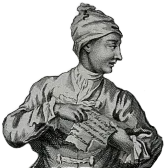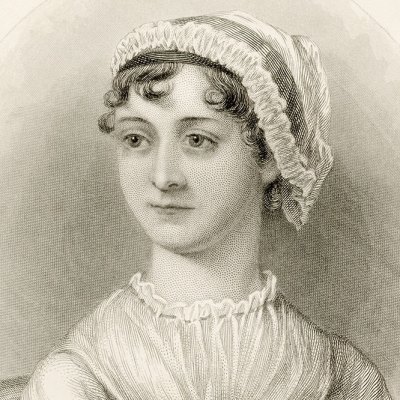Jane Austen’s House and the University for the Creative Arts have announced that visitors to the House’s learning centre will soon be able to ‘meet’ an avatar of one of Jane Austen’s most popular characters, Elizabeth Bennet from Pride and Prejudice. Lizzie Bennet, made with the help of StarPal.AI, has been given a virtual body, a Regency setting and, apparently, a ‘knowledge bank […] from a selection of novels, manuscripts, and period-accurate information’. Far be it from Rakewell to comment on the ‘knowledge bank’ but we can’t help but think there is something curiously contemporary about Lizzie’s appearance. Perhaps it is the eyebrows and lipstick, which look less Amelia Curran and more Helmut Newton, to say nothing of Jennifer Ehle.
Sophy Smith, the director of games and creative technology at UCA, has said ‘it is so exciting to finally be able to lift Elizabeth Bennet off the page’, which is an interesting way of interpreting what has happened here. It used to be said that the act of imaginative reading lifted a character off the page, but perhaps in this time of the ‘experience economy’ it’s too much to ask people to sit on their own with a book.
Of course, the thing that this Lizzie does, which no other Lizzie can, is talk back to you. ‘Think about how it could transform learning – instead of only having text-based revision guides, students can now learn about literature by speaking directly to the characters,’ Smith says. Rakewell, it must be said, never found revising through conversation that helpful. But then it’s possible that neither will the students in the learning centre. The only sample of conversation that is currently available suggests that Lizzie might not be as accomplished as her original creator. When asked how she felt about being a world first, she reportedly replied, ‘It is quite an interesting notion indeed – I must say being Elizabeth Bennet in a world far removed from my own time is an unexpected but intriguing experience. It allows me to share the intricacies of our society and my life with new audiences,’ which seems to be rather less pithy than most of the lines Austen granted the character.
Yet at least one thing about this avatar feels like an improvement. Rakewell remembers visiting the National Trust property Claydon House in Buckinghamshire. In one room, screens with faux-gilt frames hung on the wall and if you got close enough the static image sprang to life as an actor recited a small script about their role in this household. The scripts were not extensive and one quickly understood the limitations of learning by rote. By confining poor Lizzie to the learning centre, the curators are preserving the house. Jane Austen’s original title for Pride and Prejudice was First Impressions. If the house remains unmediated by avatars then anyone can take away whatever impression of the house they like. And, for those who want to meet Austen on her own ground, well, the books are always there.




